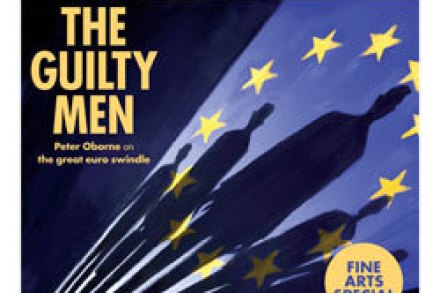The guilty men’s misplaced loyalties
Here’s Peter Oborne in mid-season form on Newsnight last night, drawing on the book he previewed in his essential cover piece in last week’s issue of the Spectator, The Guilty Men. The spokesman from the European Commission makes a statement that exposes Brussels’ current helplessness, but his comment about the post-war era reveals what many pro-Europeans on the continent feel: the EU’s greatest achievement is to have secured peace and prosperity across a continent that had been at war for most of the previous 1,000 years; wars that obviously assumed terrible dimensions in the 20th Century. The spokesman also refers to the EU’s perceived second greatest achievement: the most complete welfare settlement in


















